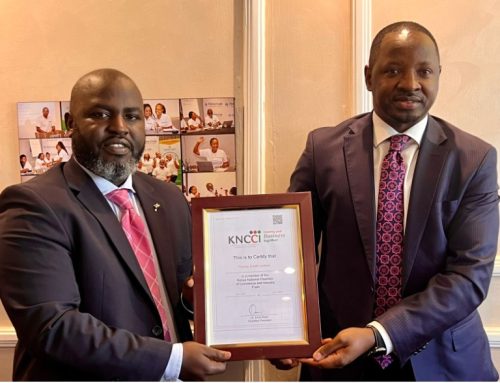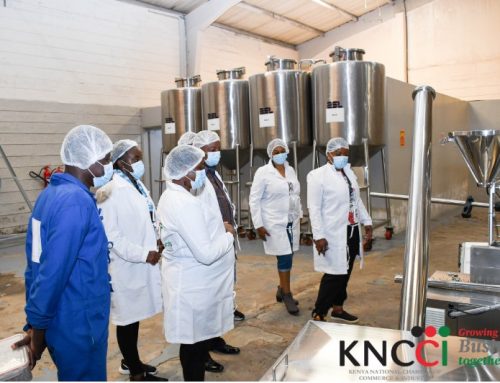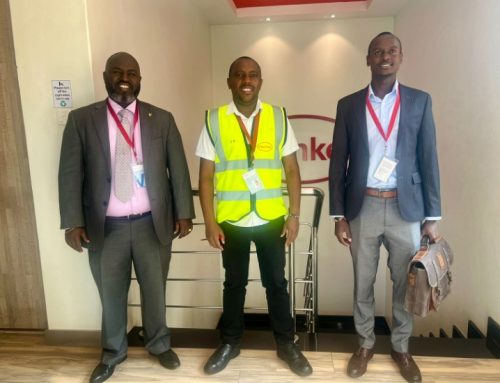Companies are embracing the digital world in greater numbers than ever before. Digitization of businesses has numerous advantages such as access to information, improved customer experience, increased productivity, lower operational costs, improved information security, higher and automation of business processes.
This morning The Centre for International Private Enterprise (CIPE) in partnership with The Kenya National Chamber of Commerce & Industry (KNCCI) and the Micro and Small Enterprise Authority ( MSEA) have launched the digital economy MSME research findings at Nairobi Serena Hotel.
KNCCI was represented by Chamber 2nd Vice President Ms. Fatma Elmaawy, CIPE was represented by Kenya Country Director Mr. Ben Kiragu and MSEA represented by Chairman Mr. James Mureu
The Centre for International Private Enterprise (CIPE) formed a Digital Economy Working Group to provide oversight for a digital economy research project that sought to identify policy and administrative hurdles experienced by SMEs in the digital space.
The Policy Brief discusses challenges, opportunities and policy recommendations focused on Micro and Small Enterprises (MSEs) as a subset of MSMEs. The research study findings and discussions with the Digital Economy Working Group revealed that MSEs represent a significant percentage of the business environment in Kenya, but are falling behind medium and large enterprises in respect to the adoption of digital technologies. Many factors constrain the participation in the digital economy, of the MSEs surveyed, but three key issues stood out in the study: digital skills training and development/awareness; internet and equipment access costs; and cyber security. With a specific focus on MSEs in the Digital Economy within the Kenyan Innovation System, the brief focuses on the three key issues to make eight recommendations target actors in the triple helix of government, industry and academia.
Issue 1: Digital skills training and development/awareness
Government: Use a Public Private Partnership (PPP) approach to offer MSE digital training and skills development / awareness programmes over a 60-month period.
Industry: Strengthen linkages between MSEs and other industry players through Business Associations (BA) so that digital training is easily accessible and focuses on sector-specific needs.
Academia: Offer appropriate training, networking and research in partnership with MSE to demystify access to digital technologies.
Issue 2: Internet and equipment access costs
Government: Use taxation, subsidies and operational efficiency to drive down cost of equipment for MSEs to enter the digital economy.
Industry: Innovate affordable products and services (Wi-Fi, cloud storage) that scale access, lower cost, and provide MSE-specific applications.
Issue 3: Cyber Security
Government: should foster a culture of cyber hygiene among MSEs in the digital economy, which
includes the development of user-only security technology.
Industry: Enhance the establishment and growth of start-ups in local/global hubs that Innovate cyber-security solutions for MSEs.
Academia: Train and undertake MSE focused research on cyber-security working with global actors.
MSEs deserve a seat, a voice, and an opportunity at the table where they can articulate their priorities
with respect to Kenya’s digital economy transformation. The recommendations in the policy brief seek
to provide a foundation for future advocacy by actors in government, industry, and academia to ensure
that MSEs are represented in policy making during this period of change. Such advocacy can be empirically grounded by the findings of the Digital Economy Report and translated into actionable steps through the Toolkit. The goal of the research and resulting products is to support the development of policy interventions that strengthen economic empowerment and democratize economic growth by increasing the inclusion of MSEs in Kenya’s Digital Economy.







Leave A Comment